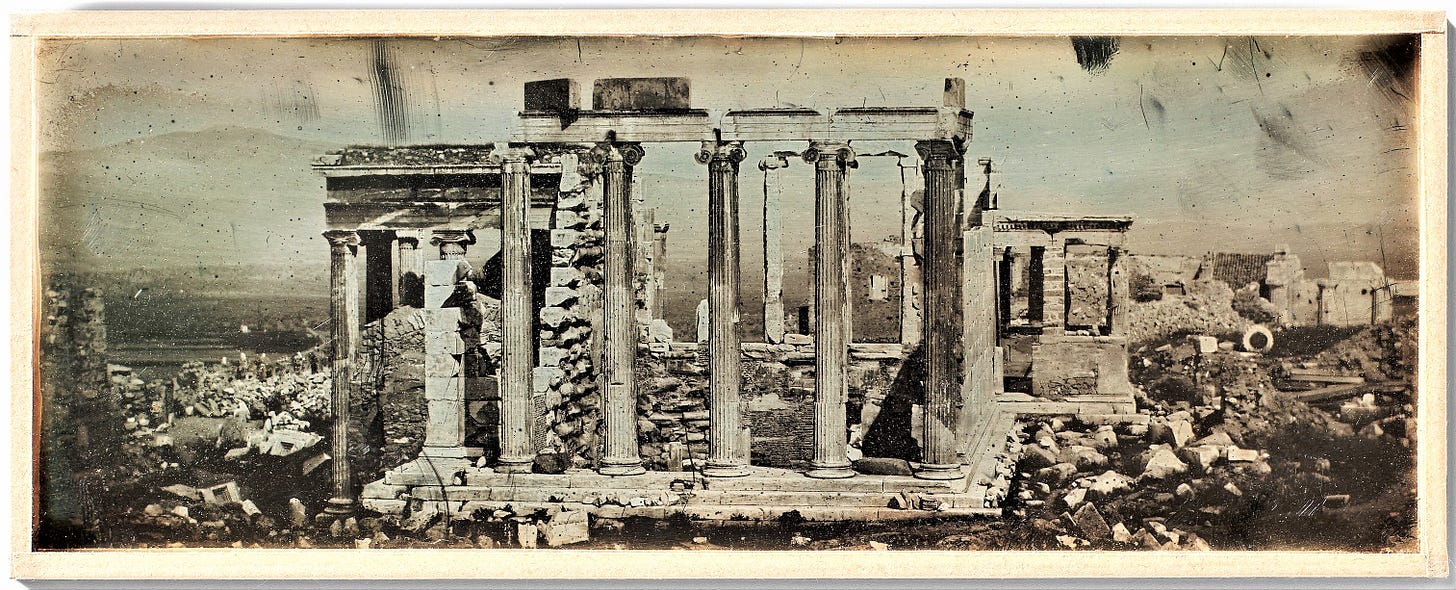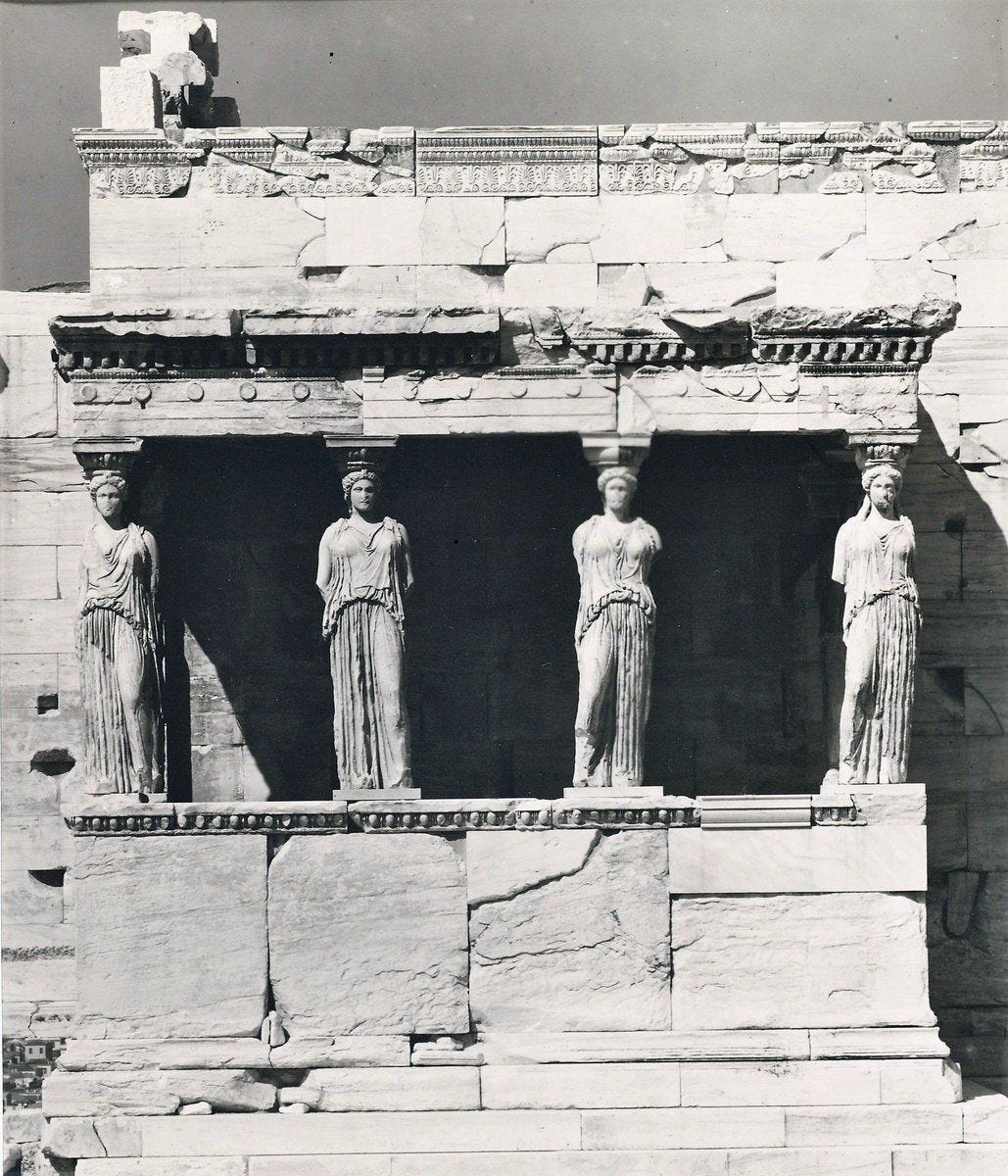One of my resolutions for this year was to stop lying to myself. “Think critically and for yourself. Have the courage of your convictions. Call things by their name, as you see them.” That’s what I wrote in my diary in December of last year.
I used to confuse “rational rumination” with intuition. I used to think a lot—a lot—about other people and their motivations, the many problems of the world, and myself and what kind of person I want to be. I thought I was being productive by thinking through these things with the clinical seriousness of a chemist. The reality is that I was working myself into twisted knots, losing myself in a great labyrinth of self-analysis and self-deception. If I think really hard about this I might figure it out. If I optimize myself and my choices just so, then I’ll be successful and happy. When I was alone, these patterns of thought took up most of my waking hours. It ended up being a pretty neurotic and self-centered way to spend my time, if I’m being honest with myself (which, as noted above, I am working on).

The older I get, the more I realize that what I may think in any given moment just doesn’t hold that much weight. Thoughts are fleeting; they change with the times. Sometimes they’re random or intrusive. Often they’re unproductive and based more on fear than love. We seek psychic security by thoroughly evaluating “all the choices,” but we feel less and less secure as a result. Follow your thoughts all day and you’ll be run ragged, darting left, right, center, and back again.
By contrast, your intuition is a deep, driving force that is unwavering and steady. It is the center of your truest and deepest self. It’s what is, not what needs convincing. Think about something, anything, that you know to be true. Your intuition is the solid feeling in your gut that says, “Yes, that’s right.” It feels clear, calm, connected. Though it’s relatively easy to find, it is hard to stick with. Most of modern life is designed to get you out of your deepest self and into your head, where you are more vulnerable to anxiety (the grease between the wheels of technocratic capitalism).
The beauty of our intuition is that it will not lie to us. The inescapable horror of our intuition is that we may not like what it tells us. That’s where rumination and the so-called experts come in to “help”: the what ifs, the maybes, the so-and-so-told-mes all swirl around in a great cloud that obscures what we know to be true.
Ironically, the things that have caused me to ruminate the most—that have created the most mental anguish—are the things that I knew most intuitively.
For example: I dated someone in my early 20s for several years. Two years into the relationship, I had serious, gut-level doubts. I knew deep down that he wasn’t right for me, but the idea of being alone was too scary. He had many wonderful qualities, got along with my family and friends, and was good to me. I reasoned with myself: he’s a great guy, maybe he’ll change. Over the following years, I attempted to convince myself, and everyone I knew, that we should be together. It was agonizing for both of us. Eventually, it was too much to take and we broke up. We both moved on quickly, free from something we knew wasn’t right.
Another example. In college and graduate school, I studied the classics: I majored in history (ancient Greece and Rome) and did a minor in history of art. I went on to get a Master’s degree in classical art, with a focus on sculpture from antiquity through the Renaissance. Even as a little kid, I loved these subjects. I have vivid memories of summers spent reading every book on ancient Egypt my local library had on the shelf. The storytelling, the beauty, the mystery—and perhaps most of all, the search for the truth—spoke to something deep inside of me, and, I think, has significant overlap with what I am pursuing today.
Here’s what I didn’t study in school: business. No disrespect to those who did, but business simply did not interest me. It’s a matter of personal taste and natural affinity. I knew this instinctively and intuitively. I did take one business class in college to round out my resume. It was a waste of time and money because I had zero curiosity about the subject matter. That’s entirely on me.
So why did I go on to pursue a corporate career for years, only to arrive at the same conclusion I had as a teenager? Because when I entered the “real world” I let the rational ruminator inside of me run wild. I didn’t listen to my intuition, in fact, I actively ignored it. My intuition gave me many signs, over many years, and I chose to ignore them all. The Sunday flights to Atlanta, the umpteenth thinkpiece on leadership, the small talk before meetings—all filled me with visceral dread.
But I played pretend. I listened to the part of me that said this was a “smart decision.” I listened to other people who said the same. I should have listened to my deepest self, not my anxieties and insecurities about myself relative to others. And look: we all need money to live, and I needed a job. I still work in the corporate world to pay my bills, but it’s much less painful now. The really damaging part was trying to convince myself that I absolutely loved it, being miserable as a result, and then feeling totally lost. I should have shaped my desires on my own experienced satisfactions, not what everyone else was doing.
I share these examples as a sort of cautionary tale. Because if you spend too long in a state of rational rumination, like I have in points of my life, it becomes harder and harder to find your way back to your intuition. There’s a huge difference between the intuitive truth and reaching a place where you’re so exhausted mentally and emotionally that you give in and convince yourself of what you want to be true. I still fall into this trap occasionally, hence the aforementioned resolution. But the more I practice listening to my intuition, the better I feel. (I’ve given two examples of how not listening to my intuition has caused me great pain, but there are countless examples where listening to my intuition has led me to great joy.)
So, I want to make a case for balance. The way that I make decisions now is based on my personal trio: my head, my heart, and my gut. The early 20s relationship? Only made sense in my heart. The corporate career? Only made sense in my head. It has to be a resounding yes from all three. This has guided me in making commitments that involve a great deal of uncertainty: belief in God, leaving my full-time corporate job, getting engaged, and wanting children one day.
The future is unknown. It is also unknowable. No amount of rational thought, scenario planning, and optionality maximization can allow you to predict or control the future. Few will tell you to trust your intuition because it’s not something that’s easy to control or monetize. Deep, unalterable feelings cannot be swayed by anxiety-inducing clickbait articles or brainless marketing campaigns. Intuition is an otherworldly power. It flies in the face of two core modern beliefs: first, that everything in life is simply a matter of rational choice, and second, that rational choosing is the sacred act of self-discovery. You will not find your true self through a series rational choices and consumptive experiences. Some things are not chosen, they simply are. You intuitively know so much more than you can put into a propositional statement. You are so much more than a rational choice machine.







